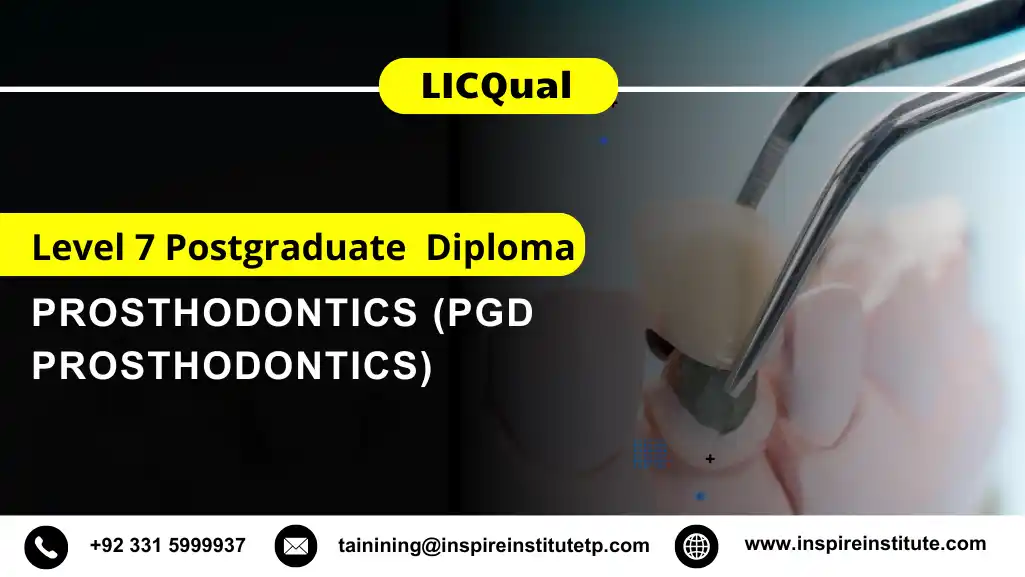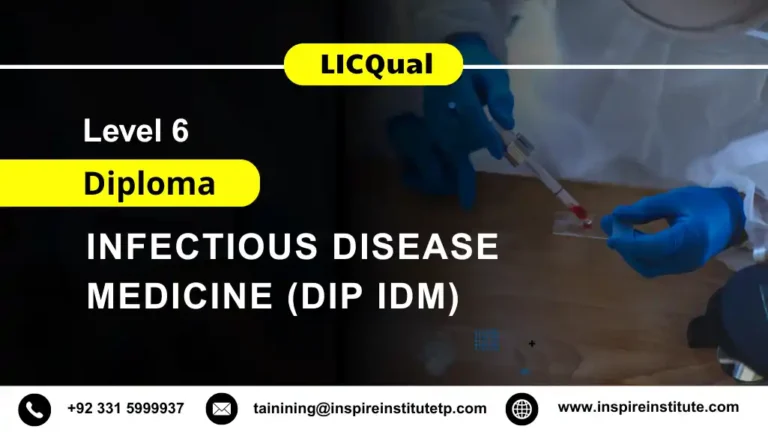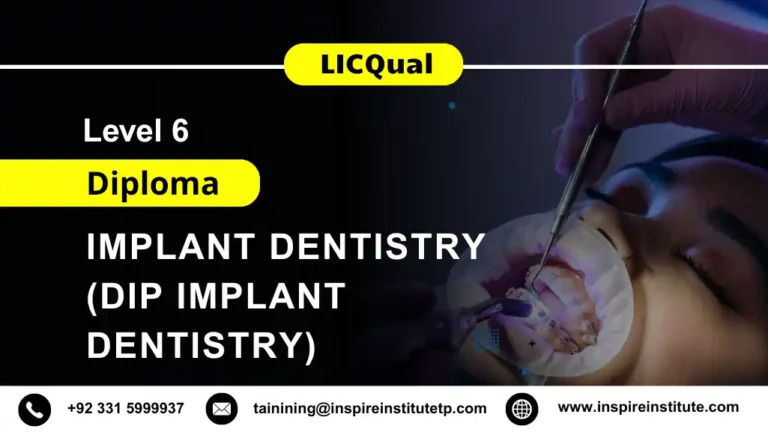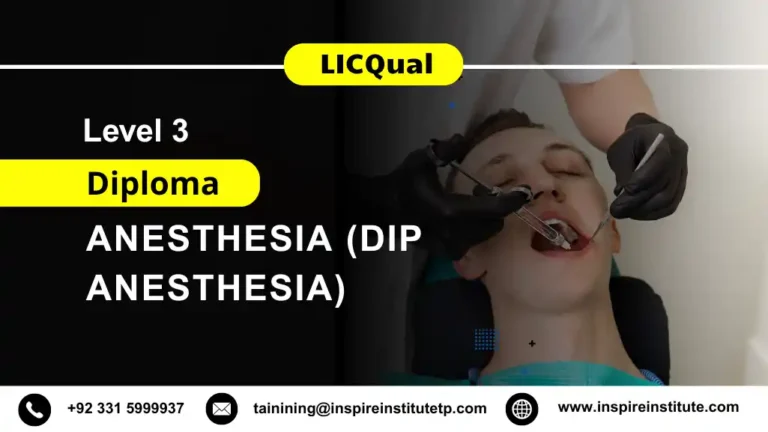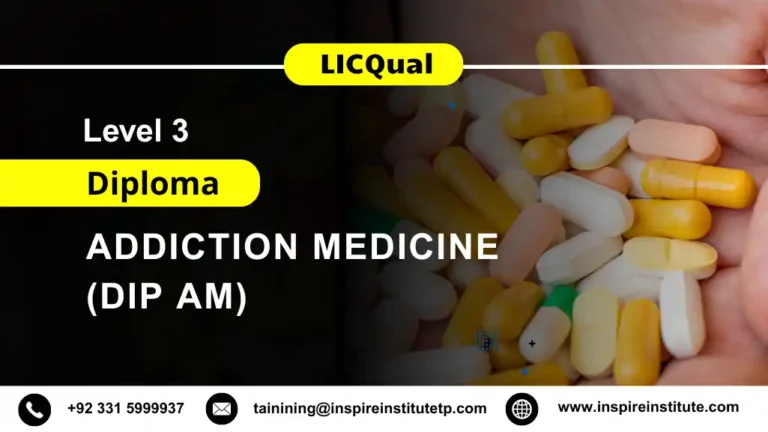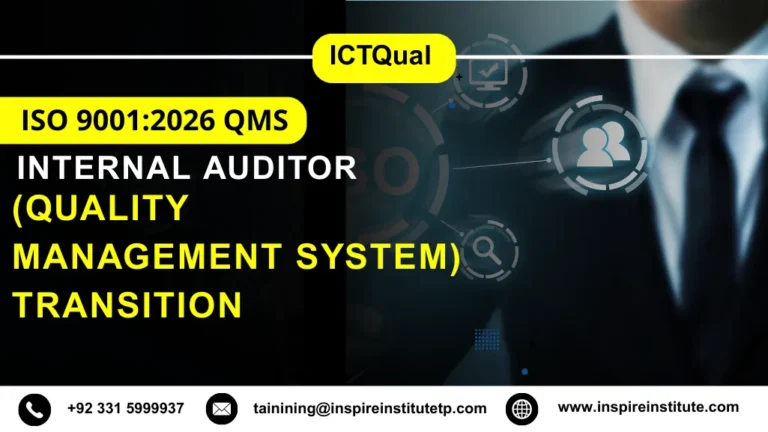LICQual Level 7 Postgraduate Diploma in Pediatric Dentistry (PgD Pediatric Dentistry)
The LICQual Level 7 Postgraduate Diploma in Paediatric Dentistry (PgD Paediatric Dentistry) is a specialised UK-based qualification tailored for dental professionals who aim to deepen their expertise in the oral healthcare of children and adolescents. This advanced postgraduate programme provides learners with the clinical knowledge, practical skills, and evidence-based understanding required to manage the unique dental challenges associated with paediatric patients.
Paediatric dentistry is a highly focused discipline that demands a blend of technical expertise, behavioural management, and compassionate care. This diploma places strong emphasis on understanding child development, psychological approaches to behaviour, and effective communication strategies with children and their parents. It covers a wide range of specialist areas, including preventive dentistry, management of dental trauma, orthodontic considerations in growing children, treatment of early childhood caries, and the application of minimally invasive restorative techniques. By combining theory with applied practice, the programme ensures that learners are equipped to provide safe, effective, and patient-centred dental care for children.
The course is delivered through a flexible, assignment-based structure, making it ideal for practising dental professionals who need to balance professional responsibilities with further education. Learners benefit from expert academic support, structured learning resources, and the opportunity to apply their knowledge in clinical settings. The curriculum is designed in line with Level 7 postgraduate standards, ensuring academic rigour and practical relevance for real-world dental practice.
On completion of the LICQual Level 7 Postgraduate Diploma in Paediatric Dentistry, graduates will be prepared to take on specialist roles in paediatric dental care, progress into senior clinical positions, or contribute to teaching and research in academic environments. This internationally recognised qualification not only enhances professional credibility but also empowers dental practitioners to make a significant impact on improving oral health outcomes for children.
Why Choose this Qualification
The LICQual Level 7 Postgraduate Diploma in Paediatric Dentistry is designed to provide advanced knowledge, practical skills, and professional recognition, making it the ideal choice for those committed to delivering high-quality dental care for children and adolescents.
Key Benefits of this Qualification:
- Specialist Expertise: Gain advanced knowledge in preventive, restorative, and trauma management tailored to paediatric patients.
- Behavioural and Communication Skills: Learn effective strategies for managing child behaviour and communicating with parents and guardians.
- Clinical Confidence: Develop competence in handling complex paediatric dental cases, from early childhood caries to orthodontic considerations.
- Flexible Learning: Assignment-based structure allows professionals to balance study with work and personal commitments.
- Postgraduate Recognition: Achieve a UK-based Level 7 qualification aligned with international postgraduate standards.
- Career Growth: Enhance opportunities for specialist clinical practice, academic teaching, or senior healthcare roles.
- Evidence-Based Practice: Build skills in applying the latest research and modern techniques to paediatric oral healthcare.
- Patient-Centred Approach: Improve the quality of care through advanced techniques that prioritise children’s comfort and safety.
This qualification empowers dental practitioners to provide exceptional paediatric care, enhance their professional profile, and make a lasting contribution to children’s oral health.
Course Overview
LICQual UK Awarding Body
Average Completion Time:
6-24 Months
Study Units: 6 Units
Evidence & Assignment Based
Mandatory Units
Who Should Take This Course
The LICQual Level 7 Postgraduate Diploma in Paediatric Dentistry is specifically designed for dental professionals who aspire to specialise in the oral healthcare of children and adolescents. It is particularly well-suited for practitioners seeking to broaden their clinical expertise, gain postgraduate recognition, and advance their careers within paediatric dentistry. This course provides an excellent opportunity to acquire advanced knowledge and practical skills required to deliver high-quality dental care for younger patients.
This course is suitable for:
- Qualified Dentists: Dental professionals with a recognised qualification who wish to specialise in paediatric dentistry.
- General Dental Practitioners (GDPs): Practitioners seeking to expand their clinical services to include advanced child-focused treatments.
- Paediatric Dental Specialists: Those wishing to enhance or update their knowledge through advanced postgraduate training.
- Dental Academics and Educators: Professionals aiming to strengthen their expertise for teaching or research in paediatric oral health.
- Dentists Seeking Career Progression: Individuals aspiring to senior roles in specialist practice, consultancy, or healthcare leadership.
- International Dental Professionals: Dentists looking for a UK-based Level 7 qualification to boost global career opportunities.
- Practitioners Committed to Patient Care: Those dedicated to delivering compassionate, child-centred, and effective dental care.
Whether you are in the early stages of your career or an experienced practitioner, this programme offers a structured pathway to develop advanced clinical competence, achieve specialist recognition, and make a lasting contribution to children’s oral healthcare.
Course Benefits
The LICQual Level 7 Postgraduate Diploma in Paediatric Dentistry offers numerous benefits for dental professionals aiming to specialise in children’s oral healthcare. This qualification combines advanced clinical training, academic excellence, and professional recognition, ensuring learners develop the expertise required to excel in both clinical and academic environments. By completing this programme, participants not only gain confidence in managing complex paediatric cases but also open doors to enhanced career opportunities in specialist practice, research, and education.
Key Benefits of the Course:
- Specialised Knowledge: Gain advanced clinical and theoretical understanding of paediatric dentistry, including prevention, trauma management, and restorative techniques.
- Enhanced Clinical Skills: Develop the ability to manage a wide range of paediatric cases with confidence and precision.
- Career Advancement: Strengthen your professional profile for specialist roles, consultancy, or senior leadership positions.
- Global Recognition: Achieve a UK-based Level 7 postgraduate diploma that enhances international career opportunities.
- Flexible Learning: Assignment-based study format designed for busy professionals balancing work and personal commitments.
- Evidence-Based Practice: Learn to apply the latest research and modern treatment approaches to children’s oral healthcare.
- Improved Patient Care: Build expertise in delivering safe, compassionate, and child-centred dental treatment.
- Academic Pathway: Provides a strong foundation for further postgraduate study or academic teaching roles.
This qualification empowers dental practitioners with the skills, knowledge, and recognition needed to advance in paediatric dentistry while making a meaningful impact on children’s oral health.
Eligibility Criteria
the LICQual Level 7 Postgraduate Diploma in Paediatric Dentistry has clear entry requirements that reflect both the academic and professional standards expected of a postgraduate qualification. This programme is designed for qualified dental professionals who already possess a strong foundation in dentistry and are ready to advance their knowledge and skills in the specialised field of paediatric oral healthcare. Applicants are expected to demonstrate relevant educational qualifications, practical experience, technical ability, and language proficiency to engage effectively with the course content and successfully complete assessments.
Educational Background –Applicants must hold a recognised dental degree or equivalent qualification in dentistry. A solid academic foundation in oral health sciences is essential to ensure learners can build upon their existing knowledge while progressing to advanced concepts in paediatric dentistry.
Professional Experience – While recent graduates may apply, prior clinical experience in dentistry is strongly recommended. Experience in general practice, paediatric care, or exposure to treating children will be advantageous, as it allows learners to contextualise their studies within real-world practice.
Age Requirement – Learners must be 21 years or older at the time of enrollment.
Language Proficiency –As the course is delivered in English, applicants must be able to communicate effectively in both written and spoken English. Proficiency ensures learners can engage with academic resources, complete assignments to a postgraduate standard, and communicate confidently in clinical and academic contexts.
Technical Requirements -Participants should demonstrate strong clinical and technical skills in dentistry, including diagnostic abilities, treatment planning, and familiarity with restorative and preventive procedures. Competence with dental instruments, digital tools, and modern treatment techniques will further support successful learning outcomes.
Required Documents – Submission of a valid ID or passport and proof of educational qualifications is necessary for registration.
The Qualification Process
LICQual Level 7 Postgraduate Diploma in Pediatric Dentistry (PgD Pediatric Dentistry) follows a structured pathway to ensure learners gain comprehensive knowledge, practical skills, and professional competence in community oral healthcare.
Step 1: Self-Assessment
Learners review the entry requirements to confirm eligibility. Candidates with a background in dentistry, oral health, or public health are encouraged to apply.
Step 2: Registration
Complete the registration process by submitting required documents such as proof of qualifications, a valid ID, and payment of enrollment fees.
Step 3: Induction
An induction session is conducted to:
- Verify learner eligibility and documentation.
- Introduce study materials, learning outcomes, and assessment procedures.
Step 4: Learning and Evidence Submission
Learners complete assignments, case studies, and practical exercises demonstrating competence in public health dentistry, community oral health assessment, preventive strategies, and program planning.
Step 5: Feedback and Revision
Assessors review submitted evidence and provide constructive feedback. Learners can revise and resubmit work to meet all required standards.
Step 6: Competence Validation
Final submissions are evaluated to confirm that learners have met all theoretical and practical learning outcomes.
Step 7: Internal Quality Assurance (IQA)
The IQA team reviews the assessment process to ensure accuracy, fairness, and compliance with international standards.
Step 8: External Verification (EQA)
External verifiers validate the authenticity and quality of learner achievements.
Step 9: Certification
Upon successful verification, learners are awarded theLICQual Level 7 Postgraduate Diploma in Pediatric Dentistry (PgD Pediatric Dentistry) ,demonstrating advanced proficiency in community oral healthcare and preparing them for professional growth in dental public health, preventive dentistry, and healthcare policy.

